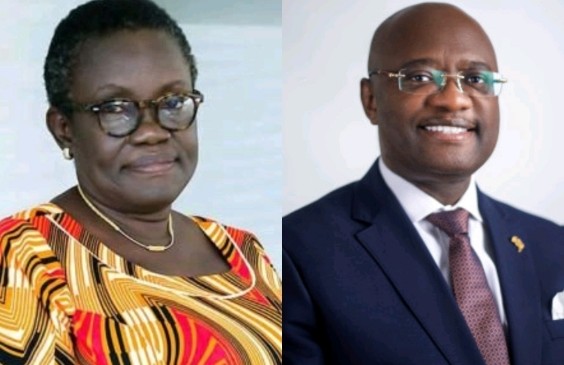
The African Shipowners Association (ASA) has sought the intervention of African Export–Import Bank (Afreximbank) in financing ship acquisition as over 90% of Africa’s cargo is carried in foreign-owned ships.
During a webinar which featured the engagement between Afreximbank and ASA the Secretary General of ASA, Ms. Funmilayo Folorunsho stated that this dependency means African Shipowners pay more for trade, lose capital to foreign operators and the economies remain exposed to external shocks.
She added that the African Continental Free Trade Area (AfCFTA) Secretariat has several times highlighted the barriers to ship-owning in Africa, which include weak infrastructure, high costs, fragmented regulations, piracy, and lack of proper ports infrastructure.Ms. Folorunsho recognised and appreciated the bank’s support in the last 10 years.
“Knowing that maritime transport is the backbone of world trade, carrying more than 80% of the goods by volume, for Africa, controlling our own vessels is about more than ships. This is also about sovereignty of our trade, securing our supply chains, and creating jobs and industries across the maritime value chain.”
The first president of ASA and former Director General of Nigerian Maritime Administration and Safety Agency (NIMASA) Temisan Omatseye said that investment in vessels are quite capital intensive . He stated that the next frontier for all kinds of businesses is Africa and the reason is that Africa has the raw material and most African countries are now taking a step further by processing these raw materials.
However, he noted that these goods have to be shipped out of Nigeria and Africa by water. He said ninety-five percent of all goods moved around the world is through seaborne cargo and unfortunately, Africa as a continent lacks the ability.
Omaseye pointed that not many banks in Africa have the kind of financial wherewithal to fund vessels but there are some financial tools which can be used for the funding and financing of vessels to support the African trade.He cited an example of Nigeria importing a large amount of crude oil to meet up the capacity of production.
“We do not want a situation whereby we have produced all these wonderful goods and we’re not competitive in the sense that the freight rates are not under our control. Whoever controls the seas controls the world and we do have a tremendous amount of water within the African space for us to control .
“I believe that Afreximbank is in a very strong position to support because we do not have the capacity right now to build a lot of these vessels. But Afreximbank, being an export and import bank is in a position to engage shipbuilding nations and shipbuilding countries where we can use their own export banks as support.
“We also have to develop very locally here in Africa. .We’re not talking only of wet cargo ,we are also talking about dry cargo. We also need the support of our oil and gas industry and the drilling operations.We need to drill additional gas well.”
Onesimo Gasper, the Operations Director at Secil Maritima, a shipping company based in Angola ,which operates a fleet of coastal vessels that connect the ports in the northern region of Angola, sought the support of Afreximbank. He said like many other African shipping companies, the company is facing significant challenges including limited access to financing, high operational costs, aging fleets, regulatory constraints, the need to build local technical capacity and human capital.
“Our front-line shipping in Angola suffers from structural limitations such as insufficient port infrastructure, lack of dry docking facilities, limited cargo volumes that often affect our operational efficiency and our profits.This is why the support of institutions like Afreximbank is really needed.Being a financial assistant, we believe Afreximbank can play an essential role by providing institutional support and promoting investment in maritime infrastructure.
Chidi Ileka, the Senior Advisor to the Secretary General, AfCFTA Secretariat, explained that Afreximbank is playing a catalytic role in strengthening Africa’s maritime sector. He said through its financing facilities, the bank finances fleet acquisition , port development and maritime operations.
According to him, the bank has an African Collaborative Transit Guarantee Scheme, which is trying to reduce transit risks and streamline customs operations and that’s in addition to the container guarantee that replaces container deposits that makes cost of business high
Ileka revealed that Afreximbank is involved in project preparation process which is a set of activities undertaken to de-risk and progress a project from conceptualization to bankability to achieve financial close in a timely manner.
He emphasised the need to reduce reliance on foreign service and service providers as far as the maritime industry is concerned.
“Afreximbank support initiatives such as the regional sealink project in partnership with NEXIM Bank and Pacific International Lines to boost inland waterways.
“There’s no reason why we shouldn’t have globally competitive shipyards . We should build our own ships, service and do the short sea shipping. We have all the raw materials to build our own ships.We have a single regulation and a single market.”, Ileka said.






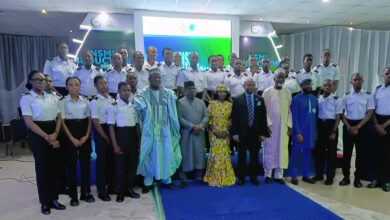
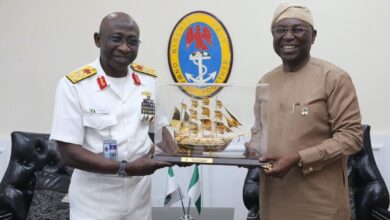
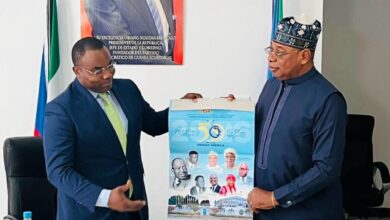
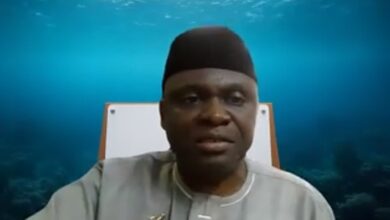


One Comment